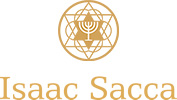The environmental message of the Torah

God gave the universe to the human being with all its richness of nuances. We are guardians of the harmonious Divine creation.
Therefore, it is important that we take the time to reflect deeply on our relationship with the environment: as a society, do we have a balanced relationship with our environment?
We live in an insatiable society: consumerism and mass production devour us. Even though we do not deny the technological advances of the last 200 years and consider them a blessing, they have a negative counterpart: the environmental damage they cause.
Climate change is a scientifically proven fact, and we are all responsible: we generate a level of pollution never seen before in human history.
The creation of G’d
In the Hebrew Bible, there is no specific word for “nature.” According to the Jewish worldview, “nature” is the Briá or “creation”. It is not an entity independent of God, it is not autonomous in its functioning or subject to its own laws, but rather it is a creation of God.
From here we learn that to attempt against nature is to attempt against the work of God.
Judaism also rejects the materialistic idea of a universe without destiny , an objective or consequences, a universe directed by chance and chaos, independent of all rules. Therefore we have responsibility for the continuity of this existence created by God, which we colloquially call “nature.”
On the other hand, Judaism is not pantheistic: it does not equate God with the natural. The Hebrew Bible does not deify nature. God creates, orders and dominates the universe, but transcends it in its Majesty.
From here we see that we can destroy nature and perish with it, due to our inexperience or to our desire for power, but God will not cease to exist. The problem is ours, not His.
The mission of the human being
The “natural world” is the stage where human life develops. Therefore, one of the main duties of humanity is to care for and protect its environment. We can use it, but always keeping in mind that we are mere passengers in this world and that the true owner is God.
Following the Biblical account, we see that God created man from the “dust of the soil” and “in the image and likeness of God”. We are simultaneously material and spiritual beings . We can be mere animals, subject to our natural instincts, or we can learn to be guided by moral nobility.
As humanity, we are at a crucial moment in our history: are we going to follow our materialistic and animal instincts or are to be guided by our spiritual and moral rationality?

